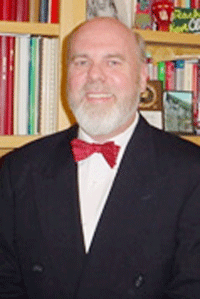Study involved 416 youth from Columbia, three other cities
January 22, 2010

Robert Valois

A five-year study by the Arnold School of Public Health has found that culturally sensitive media messages are powerful weapons in changing the HIV-associated behavior of sexually active African-American teens.
The study, supported by the National Institute of Mental Health and published last month in the American Journal of Public Health, highlights the research of Dr. Robert Valois, a professor in the Arnold School’s Department of Health Promotion, Education and Behavior.
Valois said the study tested the role of mass media messages as part of an HIV/STD prevention strategy among black youths, ages 14 - 17, in Columbia, SC: Macon, GA.; Providence, RI; and Syracuse, NY.
Valois, principal investigator of the Columbia arm of the study, said 416 youth – 225 females and 191 males – participated in the study, called Project iMPPACS. Debra Massey, a Richland District 1 school social worker, was a key player in recruiting the participants, along with the Boys and Girls Club of the Midlands and other youth groups.
Valois said the study targeted African-American teens because they constitute one of the fastest-growing, newly infected HIV groups in the country. The four test sites were selected because all have African-American communities with above-average levels of poverty and comparably high prevalence rates of Sexually Transmitted Infections (STIs) and HIV.
Moreover, the cities had not had recent HIV/AIDS media interventions or extensive school-based efforts to reduce risky sexual behavior, he said.
Participants in all of the cities were assembled into small groups and offered either a Focus on Youth (FOY) intervention that focused on HIV prevention or a general health intervention, called Promoting Health Among Teens (PHAT).
The small group interventions (FOY & PHAT) were delivered in all four cities. Syracuse and Macon additionally broadcast HIV-prevention messages on local radio and TV.
Produced by MEE Productions Inc. of Philadelphia, which specializes in developing messages for urban and ethnic audiences, the ads used young African-American actors delivering age-appropriate material promoting practices to reduce sexual risks, including effective condom use.
Valois said all of the ads featured a consistent tagline: “Life is what you make it. Be safe. If you are sexually active, there’s only one way to protect yourself for sure … use a condom correctly every time.”
The ads also were designed to counter some prevalent beliefs about sex among the teens: that sex is necessary to maintain a relationship and a steady sexual partner is a “safe” partner.
Participant feedback at the six-month follow-up found that 97 percent of the youth in the media cities had seen or heard a campaign ad, whereas only 36 percent of youth in the nonmedia cities falsely reported seeing or hearing a Project iMPPACS campaign ad.
“We anticipated and found that our media messages had a continuum of effects, ranging from improved outcome expectancies regarding effective condom use among all youth to reports of reduced unprotected sexual contacts among those who tested positive for an STI,” the researchers reported.
“A substantial reduction in HIV incidence will require wide-reaching dissemination of effective interventions,” the study said. “Because scarce resources for STI and HIV prevention strain communities, it is crucial that interventions achieve the largest possible impact among the largest possible segment of the target population and that they do so in a financially sustainable manner.”
Valois said researchers will seek additionally funding to continue Project iMPPACS. Future efforts also will target sexually-active, “optimistic biased” teens who have not contracted HIV/AIDS, an STD or an unwanted pregnancy.
The future study also will have media messages broadcast in Columbia, according to Valois.
Other University researchers who contributed to the study are Dr. Namoi Farber, co-principal investigator from the College of Social Work, and Andre Walker, project director, and graduate assistants Sarah Kershner and Jelani Kerr, all from the Arnold School



_01.jpg)
_02.jpg)